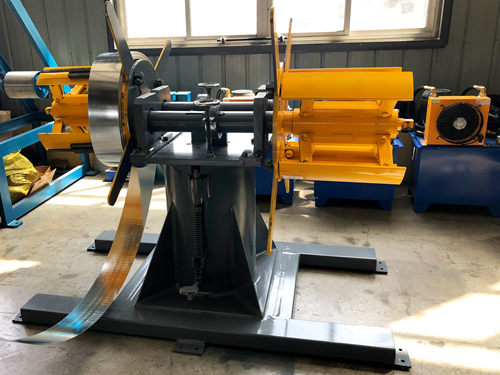
Understanding SGCC Steel A Comprehensive Overview
SGCC steel is a widely utilized material in various construction and manufacturing industries. This designation refers to Steel Galvanized Cold-rolled Commercial, which is part of the broader category of galvanized steel products. The SG specifically denotes the grade of steel, while the CC indicates that the steel is cold-rolled. This article delves into the characteristics, manufacturing process, applications, and benefits of SGCC steel.
Characteristics of SGCC Steel
SGCC steel is known for its excellent mechanical properties and corrosion resistance. It typically has a yield strength of 230 MPa and a tensile strength of 340 MPa, making it a robust option for various applications. One of its key features is its zinc coating, which provides a protective layer against rust and degradation. The thickness of this coating can vary depending on the specific requirements, but it's generally measured in grams per square meter (g/m²). This protection is crucial in environments where steel is exposed to moisture or corrosive substances.
The surface finish of SGCC steel is smooth and uniform, which makes it suitable for further processing or coating. The cold-rolled manufacturing process inevitably contributes to its refined surface quality, enhancing its aesthetic appeal and functionality. Additionally, SGCC steel maintains good ductility and formability, allowing it to be easily shaped into various forms, whether for use in automotive parts, appliances, or structural components.
Manufacturing Process
The manufacturing of SGCC steel starts with the production of hot-rolled steel. This raw material is then subjected to cold rolling, which reduces its thickness and enhances its surface quality. Cold rolling also improves the steel's mechanical properties, making it more durable and easier to work with. After cold rolling, the steel is galvanized—typically through hot-dipping—to apply a layer of zinc. This process involves submerging the cold-rolled steel in molten zinc, which forms a strong metallurgical bond.
The result is a sheet of steel that has been strengthened, shaped, and coated, ready for various applications. The entire process of manufacturing SGCC steel ensures that it complies with international standards regarding mechanical and corrosion resistance properties.

Applications of SGCC Steel
SGCC steel finds its applications across multiple sectors due to its desirable properties. One of the most common uses is in the automotive industry, where it is used to manufacture body panels and structural components. Its lightweight nature combined with high strength contributes to better fuel efficiency and safety in vehicles.
Additionally, SGCC steel is extensively used in construction for building frameworks, roofing, and wall panels. Its corrosion-resistant zinc coating extends the lifespan of structures and reduces maintenance costs. Moreover, SGCC steel is also prevalent in appliances and household items, ranging from refrigerators to air conditioners, due to its aesthetic appeal and durability.
Benefits of Using SGCC Steel
The benefits of using SGCC steel in various applications are robust. Firstly, its high corrosion resistance ensures that products made from SGCC steel have a longer service life, minimizing the need for replacements. Secondly, the material's strength-to-weight ratio makes it an excellent choice for applications where weight reduction is crucial without compromising structural integrity.
Moreover, SGCC steel is cost-effective compared to other materials, such as stainless steel, when both initial costs and maintenance over time are considered. Its versatility in manufacturing processes allows for a range of products that meet specific requirements in different industries.
Conclusion
In summary, SGCC steel is a critical material in modern manufacturing and construction, offering a unique combination of strength, corrosion resistance, and versatility. With its wide range of applications and benefits, SGCC steel continues to be a preferred choice for industry professionals aiming for quality and durability in their projects. Understanding its properties and applications allows businesses to make informed decisions when selecting materials for diverse uses.